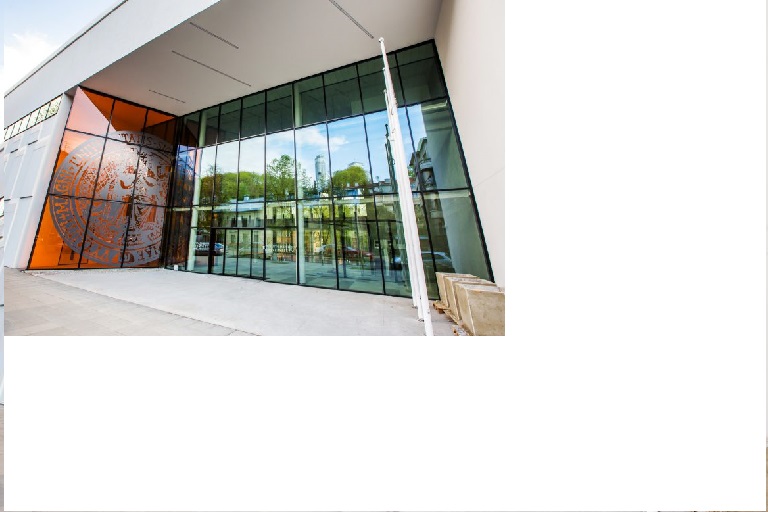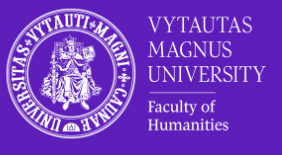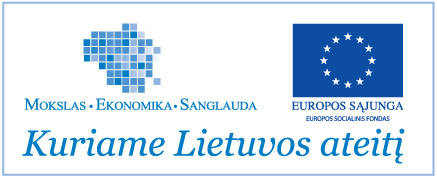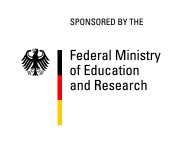Conference "Sustainable Multilingualism 2017" at VMU, Kaunas
VMU Institute of Foreign Languages (IFL) in cooperation with Language Teachers’ Association of Lithuania (LKPA) is organizing the 4th VMU IFL and the 11th LKPA international conference SUSTAINABLE MULTILINGUALISM 2017, which will be held on 26-27 May, 2017 at Vytautas Magnus University, Kaunas, Lithuania.

The conference aims at bringing together scholars and language education professionals to share their research insights and discuss the issues relevant to the development of individual and societal multilingualism, including language policy, linguistic human rights, and language education in higher education.
Keynote speakers
 |
Prof. MANUEL CÉLIO CONCEIÇÃO, President of the Conseil europeen pour les langues / European Language Council (CEL/ELC), professor of French linguistics and researcher at the University of Algarve, Faro, Portugal. He is an expert and member of a number of international projects on multilingualism and language policy. He was awarded the Order of Arts and Letters from the Ministry of Culture and Communication of France (2013). Research interests: linguistics (lexicology, terminology), language and literary studies, language policies, language didactics, intercultural communication and languages. |
|
Prof. JEAN-MARC DEWAELE, Professor of Applied Linguistics and Multilingualism at Birkbeck, University of London. He is President of the International Association of Multilingualism and former president of the European Second Language Association. He is General Editor of the International Journal of Bilingual Education and Bilingualism. He won the Equality and Diversity Research Award from the British Association for Counselling and Psychotherapy (2013) and the Robert Gardner Award for Excellence in Second Language and Bilingualism Research (2016) from the International Association of Language and Social Psychology. He is a keen walker, skier and karate-ka. www.bbk.ac.uk/linguistics/our-staff/academic-staff/jean-marc-dewaele |
|
|
Prof. ROBERT PHILLIPSON, Professor Emeritus at Copenhagen Business School, Denmark, has been actively involved in research on linguistic human rights, multilingualism in higher education, issues of EU language policy. R. Phillipson is the author of 19 books including Linguistic imperialism (1992), English-only Europe? Challenging language policy (2003), and Linguistic imperialism continued (2009), editor of books on language rights and multilingual education, including Why English? Confronting the Hydra (with Bunce, Rapatahana, and Tupas, 2016) and Language Rights (four volumes, with Skutnabb-Kangas, 2016) and about 200 scientific articles. He was awarded the UNESCO Linguapax prize in 2010. Research interests: English in the modern world, reasons for its expansion, and implications for other languages; linguistic imperialism, language and power, postcolonial and neoimperial languages; language rights, linguistic human rights, linguistic justice; language pedagogy, the learning of English. |
|
|
Prof. TOVE SKUTNABB-KANGAS, a world renowned scholar, bilingual in Swedish and Finnish since birth, Professor Emerita of Roskilde University, Denmark, has been actively involved with struggles for language rights for five decades. She has authored or edited some 50 books and over 400 articles and book chapters in almost 50 languages. She was awarded the UNESCO Linguapax prize in 2003. Research interests: linguistic human rights, linguistic genocide and crimes against humanity in the education of Indigenous/ tribal/ minority/ minoritised children, linguicism (linguistically argued racism), mother-tongue-based multilingual education, linguistic imperialism and the subtractive spread of English, support for endangered languages, and the relationship between biodiversity and linguistic diversity. |
CONFERENCE TOPICS
-
Language policy
-
Language education in multilingual and multicultural environment
-
Issues in minority language education
-
Less widely taught languages
-
Challenges for culture and identity
-
Multilingualism for business and in business
-
Multilingualism and educational mobility
-
Non-formal and informal development of plurilingual competence
-
Literature and multilingualism
-
Issues in translation in multilingual environment
5 REASONS TO ATTEND THE CONFERENCE
-
Meet in person world-known researchers in linguistic human rights and outstanding language policy researchers and developers
-
Share your research insights within international community
-
Discuss current issues of multilingualism with members of international community
-
Strengthen the existing and establish new partnerships in the international research and education community
-
Visit Lithuania – one of the three Baltic states, the country where the oldest surviving Indo-European language is spoken















